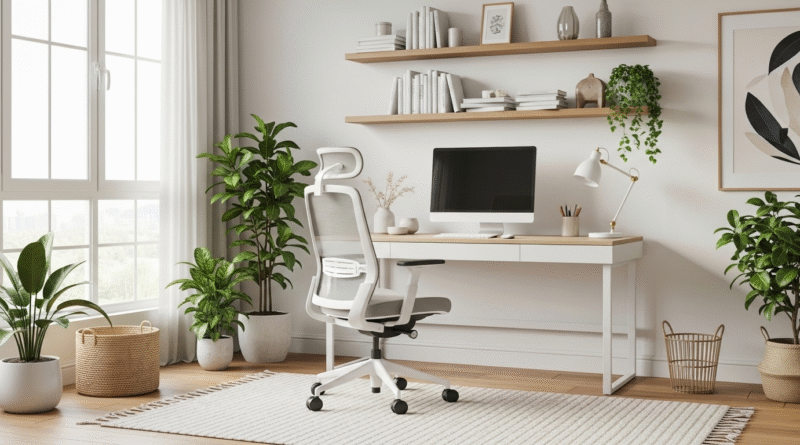How to Set Up a Stylish and Productive Home Office
Working from home is more common than ever—and your home office should be both functional and inspiring. Whether you have a dedicated room or a small corner, a well-designed workspace can boost your productivity, reduce stress, and reflect your personal style.
Why Your Home Office Design Matters
- Boosts Productivity: A clean, organized workspace helps with focus.
- Improves Comfort: Ergonomic furniture reduces strain and fatigue.
- Enhances Professionalism: Even virtual meetings benefit from a stylish backdrop.
- Supports Mental Well-being: An inspiring space motivates and uplifts your mood.
Step-by-Step Guide to Designing a Home Office That Works
1. Choose the Right Location
Ideally, select a space with natural light and some privacy. Consider:
- A spare bedroom
- A corner of the living room
- A closet-office (“cloffice”)
- A nook under the stairs
If space is limited, wall-mounted desks or foldable furniture can help.
2. Prioritize Ergonomics
Comfort is key for long hours. Invest in:
- An adjustable, supportive office chair
- A desk with proper height (or use a riser)
- A keyboard and mouse that align with your arms
- A monitor at eye level
A good setup reduces back, neck, and wrist strain.
3. Use a Functional Desk
Your desk should suit your needs and fit the space. Options include:
- Floating wall desks for tight spots
- Standing desks for posture variation
- L-shaped desks for multitasking and dual monitors
Choose a style that fits your decor: wood for warmth, metal for industrial, white for minimalism.
4. Maximize Natural Light
Place your desk near a window if possible. Natural light:
- Reduces eye strain
- Improves mood and energy
- Helps regulate sleep cycles
Use sheer curtains or blinds to control glare.
5. Layer Your Lighting
Combine lighting types to reduce shadows and add ambiance:
- Task lighting (desk lamps or LED lights)
- Overhead lights (avoid harsh fluorescents)
- Accent lighting (wall sconces or ambient table lamps)
Warm light (2700K–3000K) is easier on the eyes and creates a cozy feel.
6. Keep It Organized
Declutter your desk to clear your mind. Use:
- Drawer organizers
- Cable management systems
- Floating shelves or pegboards
- Labeled storage boxes
A tidy space supports mental clarity and saves time.
7. Add Style and Personality
Just because it’s a workspace doesn’t mean it should feel sterile. Decorate with:
- A few art prints or framed quotes
- A rug to define the space
- Desk accessories in your favorite color
- A mood board or corkboard for inspiration
Balance functionality with decorative elements that make you feel good.
8. Bring In Greenery
Plants purify air and add life. Try:
- Snake plants or pothos (low maintenance)
- Small succulents for your desk
- Hanging plants to save surface space
Even faux plants can provide visual calm.
9. Design a Video Call-Friendly Background
If you’re often on video calls, set up a professional-looking backdrop:
- A clean, styled bookshelf
- A neutral wall with art
- Good lighting aimed at your face
Avoid clutter, bright windows behind you, or busy patterns.
Home Office Styles to Inspire
Modern Minimalist
- Sleek desk
- Black-and-white accents
- Simple shelves with minimal clutter
Scandinavian
- Light wood tones
- Neutral colors
- Cozy textures and lots of light
Boho Chic
- Woven baskets
- Patterned rug
- Earthy tones and indoor plants
Industrial
- Metal desk and chair
- Edison bulb lighting
- Exposed brick or pipes
Final Thought: Your Space, Your Focus
A productive home office isn’t about how big or expensive it is—it’s about how well it supports your work and well-being. With smart planning, functional furniture, and a dash of style, you can create a workspace you actually look forward to using every day.
